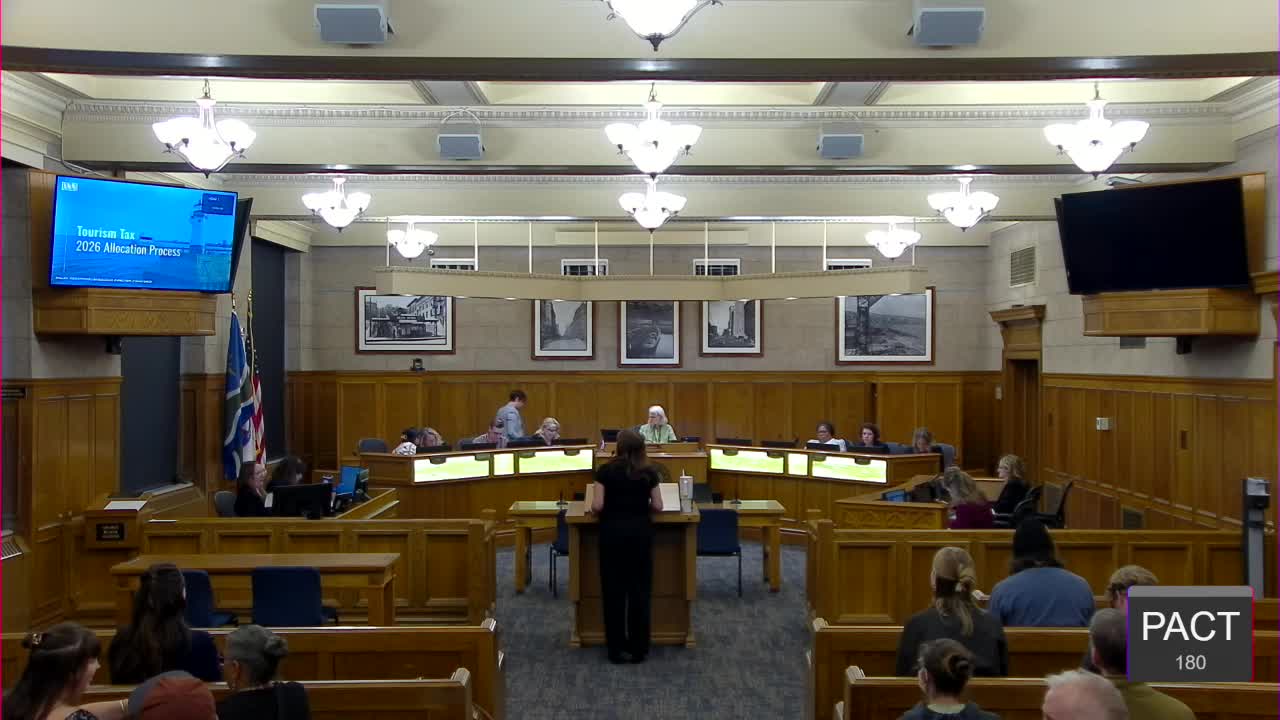Visit Duluth to administer $695,000 discretionary tourism‑tax pool; applicants will have to report visitor origin
Get AI-powered insights, summaries, and transcripts
Subscribe
Summary
Visit Duluth will administer the city’s $695,000 discretionary portion of the tourism tax under a five‑year service agreement beginning with the 2026 allocation cycle. Executive Director Haley Hedstrom said the organization will manage application review and awards and requires applicants to report visitor origin data.
Visit Duluth will take responsibility for administering the city’s discretionary tourism‑tax allocation beginning with the fiscal‑year 2026 cycle, the organization’s executive director told the Duluth City Council on Oct. 14.
What changed: Under a five‑year service agreement approved in March, Visit Duluth will manage the $695,000 discretionary pool’s application, review and award process; the council will retain final approval of total allocations by resolution.
Executive Director Haley Hedstrom said the change “simplifies the administration” and lets Visit Duluth align awards with the city’s broader tourism and marketing strategy. “This isn’t just a subsidy. It’s an investment engine,” she said.
Process and timeline: Hedstrom said the application would open within a week after a final board discussion, close in early November, and follow a review period leading to award notifications in late November. Visit Duluth will publish a press release and post the application at visitduluth.com. A review committee made up of Visit Duluth staff and board members will score applications using a rubric; the full Visit Duluth board will finalize recommendations for council approval.
New reporting requirement: Beginning with the next cycle, applicants must provide visitor‑origin data (for example ZIP codes) and demographic information; applications lacking that data will not be considered. Hedstrom said the requirement is intended to show return on investment and direct funding toward projects that drive overnight stays and visitor spending.
Eligibility and priorities: Hedstrom said priority will be given to projects that expand visitor reach, increase overnight stays and produce measurable economic results. Applicants should describe visitor impact, economic contribution, marketing partnerships and how outcomes will be tracked.
Council reaction and questions: Councilors asked about smaller, volunteer‑run attractions’ ability to meet data and reporting requirements. Hedstrom said staff and Visit Duluth can provide application support to smaller organizations and noted many such organizations have historically received funding. Councilors also asked about geography and whether funding would be spread across Duluth neighborhoods; Hedstrom said location is not a specific scoring question but said the board evaluates mission and visitor impact.
Administration and oversight: Hedstrom said Visit Duluth will provide a comprehensive annual report on outcomes and that city staff will be kept informed at key points. The council will approve final awards by resolution.
Public comment: During the public comment period, Jay Walker of the Great Lakes Aquarium described the aquarium’s growth and economic impact and said tourism‑tax support was critical to leveraging state grants and building exhibits that attract visitors.
Next steps: Visit Duluth will finalize its board discussion, open the application, and return award recommendations for council approval in November.
